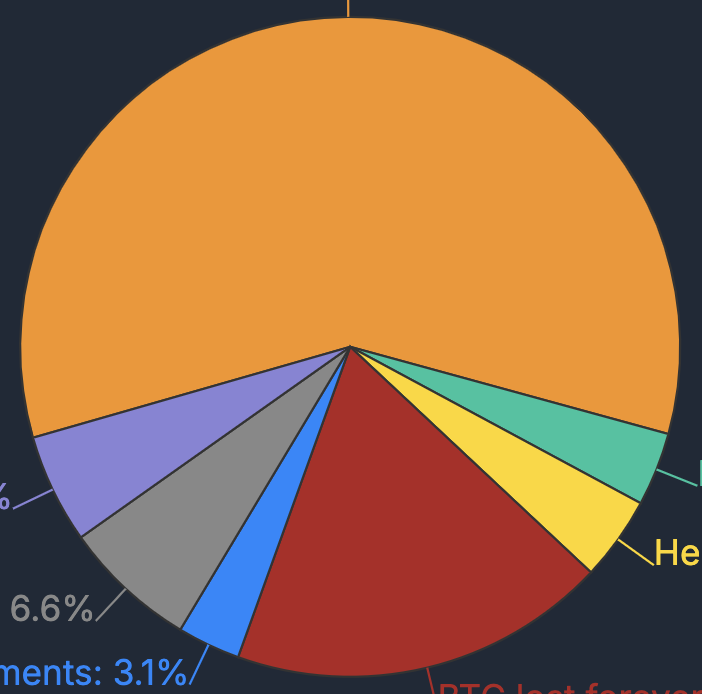Market Euphoria, Creative Destruction, and the End of Easy Money: A Conversation with Dave Collum

As markets reach new highs and investor euphoria builds, Cornell chemistry professor Dave Collum offers a sobering perspective on the state of financial markets and broader societal trends. His analysis suggests we may be approaching the end of a multi-decade cycle of easy money, with potentially significant implications for investors and society at large.
The Market's Foundation
The fundamental issue, according to Collum, is that markets have been distorted by decades of loose monetary policy. One clear sign is that private equity firms can profitably engage in what he describes as "destroying companies" - buying them, loading them with debt, stripping assets, and selling them off, with a 47% probability of subsequent bankruptcy. When destroying value becomes profitable, it suggests money is too loose.
This ties into a broader thesis about interest rates and market cycles. Looking back to Warren Buffett's 1999 Fortune article, Collum points out that what truly drives long-term market performance is the direction of interest rates, not GDP growth, wars, or pandemics. From 1967 to 1981, when rates were rising, inflation-adjusted markets fell 75%. From 1981 to present, as rates fell from 17% to near zero, markets soared.
Valuation Concerns
The current market appears to be significantly overvalued by historical measures:
- By some metrics, markets are 200% above fair value
- The Case-Shiller metric (normalized from 1880-1990) shows markets at 38 vs. a historical average of 12
- Inflation doesn't solve overvaluation issues since both price and earnings are inflation-sensitive
More concerning is the impossibility of growing out of overvaluation. Collum uses Coca-Cola as an example: When it traded at 50x earnings in the late 1990s, it was effectively yielding 2% when 10-year bonds offered 5.5%. Even if earnings doubled, the yield would only reach 4% - still inadequate compensation for the risk.
The Federal Reserve's Dilemma
While many believe the Federal Reserve has outlawed market downturns through its willingness to print money and cut rates, Collum suggests they may be running out of options. The playbook that worked in 2008 and 2020 might not work next time due to inflation constraints.
Key points about monetary policy:
- Global M2 money supply has historically tracked inflation
- The Fed may be "boxed in" by inflation expectations now built into the system
- Union activity and contractor estimates now build in significant inflation assumptions
- Traditional inflation metrics may be understating true price pressures
Creative Destruction and Technology
On the technology front, Collum offers a nuanced view of creative destruction. While innovation is essential, he argues there's a natural pace at which creative destruction should occur - one that allows society to amortize investments before they're obsolete. Moving too quickly can be wasteful and destructive.
This applies to current technological shifts:
- AI threatens jobs previously thought safe
- Digital transformation often shifts work to consumers without clear benefits
- The pace of change may be artificially accelerated by loose monetary policy
Portfolio Strategy
Given these concerns, Collum maintains a defensive portfolio positioning:
- Largest position is in cash equivalents (2-year Treasuries)
- Significant gold allocation (around 27%)
- Avoiding stocks due to potential for prolonged decline
- Interested in platinum as a contrarian play
He suggests the era of V-shaped recoveries may be ending, with markets potentially following a pattern more like the Japanese Nikkei - grinding lower over time rather than sharp drops followed by quick recoveries.
Looking Ahead
Several key risks and trends to watch:
- Potential end of a 45-year bull market cycle
- Inflation expectations becoming embedded in the system
- Questions about the sustainability of current valuations
- Rising geopolitical tensions
- Technological disruption accelerating
Conclusion
While markets remain euphoric, Collum's analysis suggests caution is warranted. The combination of extreme valuations, monetary policy constraints, and accelerating technological change could create a challenging environment for traditional investment approaches. Instead of expecting quick recoveries from market drops, investors might need to prepare for a more prolonged period of adjustment as decades of monetary expansion unwind.
The key question isn't whether markets will eventually revert to historical valuations - they always have - but rather how long the process might take and what form it might take. As Collum notes, "I think the investor will have his soul ripped out sort of one piece at a time over a long period of time."




































